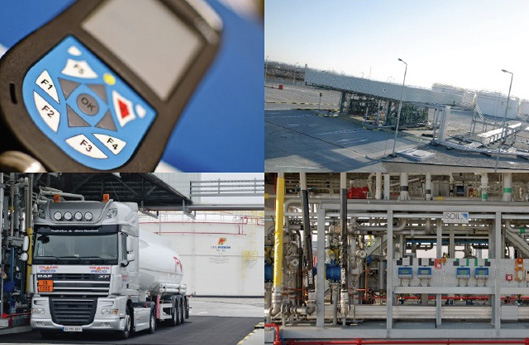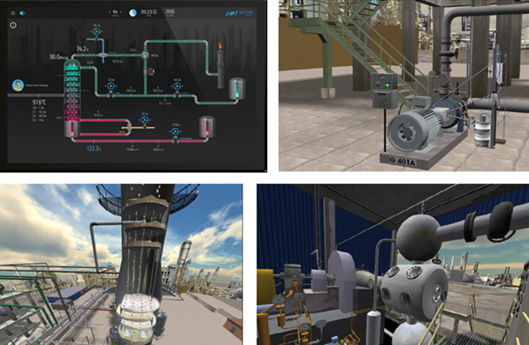Digitalization in Downstream
Digitalization initiatives in Downstream will generate new value in the selected focus areas of operational excellence, value chain integration, and customer experience. The Downstream Digitalization Roadmap for 2025 consists of 60+ initiatives to achieve process optimization, simplify work, extend our digital capabilities, lower costs, embrace new business opportunities, and further contribute to an innovative corporate culture.
Digital terminal

We are implementing a digital and automated end-to-end business process covering the entire operational cycle of tank farms. This entails harmonizing the IT landscape across all depots to increase the efficiency of the entire operational process, from loading activities to digital data processing in the terminal management system. Furthermore, mobile technologies have eliminated all paper-based processes, simplifying and making fuel loading safer. Embracing the Internet of Things approach, we have introduced a fully automated emergency monitoring and execution system with automated fire-extinguishing components, thus improving safety, security, and regulatory compliance.
Algorithms supporting gas traders
OMV GAS, which is authorized to trade in twelve EU gas markets, implemented an algorithmic trading tool to simultaneously monitor constantly changing order book activities related to the trading of gas contracts. Every event in the order books is read and stored in real time in a high-performance database, comprising around 400,000 data records. Data analytics tools combine other market information to search for patterns and optimize trading decisions. The system also helps close trades in milliseconds, while balancing fluctuations in gas supply and demand and optimizing gas transportation as well as gas storage capacities. Such automation reduces the workload, while optimizing the OMV GAS portfolio all day, every day.
Virtual training center

In addition to virtual 2D and 3D simulator classroom training aimed at ensuring optimal preparedness for unplanned or critical events, OMV distributes simulator training software with standard computers, thus enabling employees to train autonomously and according to requirements. This helps provide cost-effective trainings with high coverage across all refinery sites.